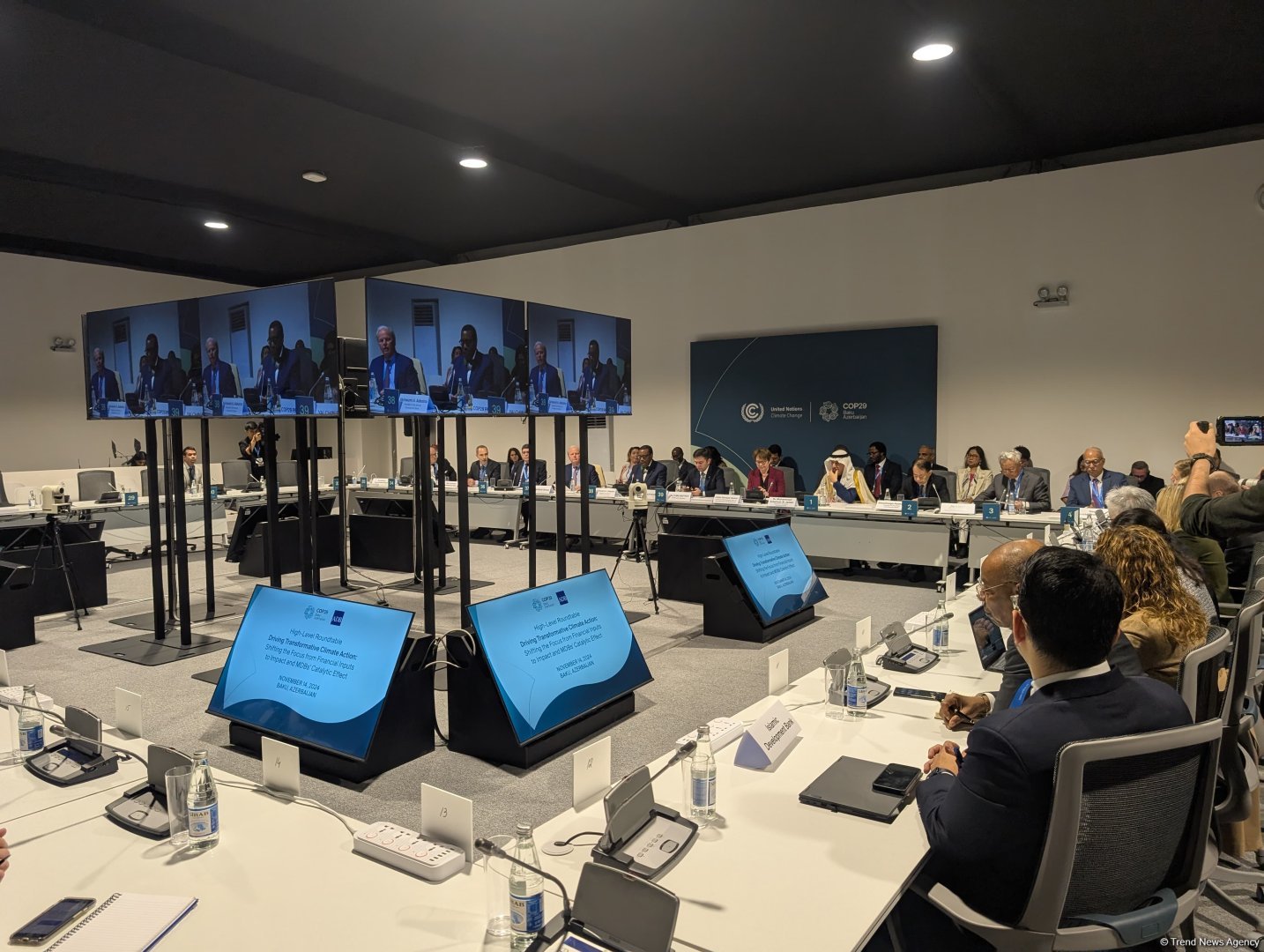BAKU, Azerbaijan, November 14. COP29 is hosting a roundtable discussion on “Driving Transformative Climate Action: Shifting the Focus from Financial Inputs to Impact and MDBs' Catalytic Effect," Trend reports.
The event aims to discuss the role of multilateral development banks (MDBs) in leveraging climate finance in emerging markets and developing countries.
The event is organized by the COP29 Presidency and the Asian Development Bank.
As Yalchin Rafiyev, Chief Negotiator for COP29 stated, achieving our collective climate goals demands a swift and substantial increase in financing.
"Achieving our collective climate objectives requires a rapid increase in financing from all relevant sources for developing countries, with government financing playing a key role. Climate finance is crucial to achieving the Paris Agreement goals, including reaching net-zero greenhouse gas emissions. However, current financing is inadequate," Rafiev said.
He further stressed that addressing climate change requires not only significant financial resources but also a well-designed financial system that ensures sustainability, stability, and accessibility.
Akinwumi A. Adesina, President of the African Development Bank Group, highlighted the pivotal role of MDBs in mobilizing climate financing.
"The Global Stocktake (GST) in the UAE has pushed us onto a more ambitious path to combat climate change. The decision to triple renewable energy usage, double energy efficiency, and halt deforestation by 2030 is crucial. However, the climate finance needed to combat climate change ranges from $5 to $11 trillion, averaging $8 trillion. Multilateral development banks must play a decisive role in mobilizing this financing," Adesina noted.
Masatsugu Asakawa, President of the Asian Development Bank (ADB), added that in 2024-2025, MDBs will focus on developing highly integrated carbon markets.
"As MDBs, we are united in our commitment to the Paris Agreement and our mission to drive transformative climate action. As the current Chair of the MDB Climate Action Group, I want to emphasize our collective efforts within the so-called Article 6 Working Group. This platform brings together MDBs to assist countries in developing and implementing carbon market mechanisms and non-market approaches under Article 6 of the Paris Agreement," Asakawa said.
He also highlighted that this cooperation allows countries to leverage Article 6 as a powerful tool to enhance climate ambitions, increase investment, and promote sustainable development.
"Our collaboration provides countries with the opportunity to leverage Article 6 as a powerful tool to enhance climate ambitions, attract investment, and foster sustainable development. In 2024 and 2025, our focus will be on three key areas: building capacity, developing enabling infrastructures for effective implementation, and co-creating highly integrated carbon markets," Asakawa added.







